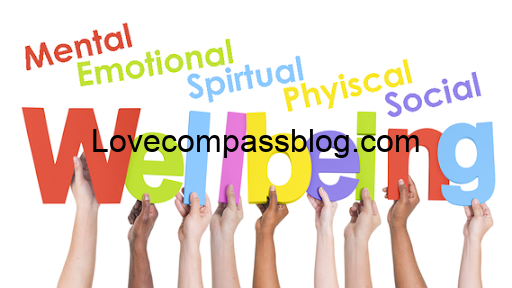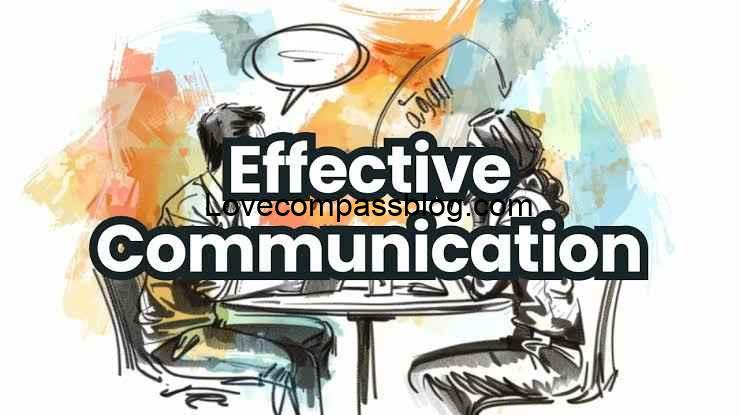The Importance of Mutual Support in Relationships

Ever wondered what keeps relationships thriving in the long run? It’s not just love or chemistry—it’s the power of mutual support. A relationship where both partners stand by each other through thick and thin is one that can weather any storm. Mutual support is not just a nice-to-have; it’s the backbone of any successful partnership. Whether you’re going through the daily grind, tackling life’s challenges, or celebrating wins, knowing that your partner is your biggest supporter makes all the difference. Let’s dive deep into the essence of mutual support in relationships and see how it can shape the future of your partnership.
Mutual Support in Relationships

What is Mutual Support in a Relationship?
Mutual support refers to the balanced and reciprocal commitment that two people in a relationship have toward each other’s well-being. It’s more than just giving a helping hand during difficult times; it’s about sharing a deep connection where both partners make emotional investments, helping each other grow and succeed. In a relationship where mutual support thrives, there is a continual exchange of care, concern, and encouragement.
This support can manifest in different forms: emotional, physical, financial, and psychological. Each aspect helps in creating a nurturing and safe environment where both partners feel valued and understood. It’s the core of what makes relationships fulfilling and long-lasting.
The Role of Trust and Emotional Intimacy
Trust and emotional intimacy are the bedrock of mutual support. Without trust, no amount of emotional or physical support will hold the relationship together. When both partners trust each other deeply, they feel secure in expressing vulnerabilities and sharing their true selves. This trust builds a bridge for emotional intimacy, allowing both partners to bond more deeply.
In practical terms, emotional intimacy involves being vulnerable, opening up, and offering your full attention to your partner. It helps create a shared emotional space where mutual support can grow. Both partners feel safe to express their needs, fears, and dreams, knowing that they won’t be judged or dismissed.
The Meaning of Mutual Effort in a Relationship
Mutual effort is not just about doing things for each other; it’s about collaborating and contributing equally to the relationship. Both partners invest time, energy, and attention into making the relationship work. Mutual effort ensures that no one feels like they’re carrying the relationship on their own, which can lead to resentment and frustration over time.
The essence of mutual effort includes sharing both emotional and physical responsibilities—whether it’s dividing household chores, supporting each other’s careers, or taking the lead in different areas of the relationship. It’s about recognizing that relationships require ongoing work from both sides to stay balanced and fulfilling.
Key Elements of Mutual Support

Effective Communication in a Relationship
Communication forms the lifeline of mutual support. Without clear and open lines of communication, even the most loving partners can misunderstand each other. Supportive communication means creating a space where both partners feel safe to express their thoughts, emotions, and concerns without fear of criticism.
There’s a difference between merely talking and genuinely communicating. When partners use respectful communication, it means they listen attentively, respond thoughtfully, and speak kindly. This creates a positive feedback loop where each partner feels appreciated, heard, and understood.
Honest Communication and Emotional Availability
Honesty in communication is crucial for maintaining transparency and preventing misunderstandings. Whether discussing finances, future plans, or personal emotions, honesty ensures that both partners are on the same page. Emotional availability, on the other hand, means being present—not just physically but emotionally too. It’s about being willing to engage with your partner’s feelings and offering comfort when needed.
Honest and emotionally available communication helps foster a deeper bond, allowing mutual support to take root in the relationship.
Empathy and Understanding in Relationships
Empathy allows partners to feel and understand each other’s emotions on a deeper level. It’s the ability to put yourself in your partner’s shoes, offering support not just when asked but when you intuitively know it’s needed. This level of empathy builds a stronger emotional connection, facilitating relationship empathy and emotional bonding.
In practice, relationship empathy means actively listening to your partner’s concerns, recognizing their feelings, and responding with compassion. This not only builds trust but also strengthens the relationship’s foundation of mutual support.
Understanding and Meeting Each Other’s Needs
Understanding each other’s needs is a critical part of mutual support. This can include emotional needs like validation and comfort or practical needs like help with daily tasks or financial support. When both partners take the time to identify each other’s needs, it shows that they value and prioritize each other’s well-being.
Meeting these needs doesn’t just fulfill short-term desires; it also nurtures the relationship in the long run, creating an environment where both partners feel secure and supported.
Establishing Boundaries and Respect
Healthy boundaries are essential for maintaining individuality in relationships. While mutual support thrives on togetherness, it’s equally important to respect each other’s space, autonomy, and personal boundaries. A relationship where boundaries are honored is one where both partners feel free to express themselves without fear of being overwhelmed or losing their identity.
Mutual respect goes hand-in-hand with boundary-setting. It’s the act of valuing your partner’s feelings, time, and decisions, even when they may differ from your own. Respecting boundaries allows the relationship to function smoothly, providing the space needed for mutual support to grow.
Practical Ways to Support Your Partner

Emotional and Financial Support
Support in relationships extends beyond just the emotional realm. While offering emotional support is crucial—whether it’s listening during tough times or offering words of encouragement—financial support also plays a significant role in maintaining a balanced partnership. Financial support might mean sharing the costs of living, helping your partner achieve their financial goals, or being understanding when one partner is going through financial difficulties.
Providing Emotional Support
Being emotionally supportive means being there for your partner in a way that makes them feel cared for, understood, and valued. Emotional support can be expressed in simple but profound ways—such as offering a comforting presence, being a sounding board for frustrations, or providing reassurance during moments of self-doubt.
When partners are emotionally available for each other, they create a safe space where vulnerabilities can be shared, and challenges can be tackled together.
Financial Support in a Relationship
While financial support doesn’t always mean direct monetary help, it can involve sharing responsibilities related to money management, saving for future goals, or even offering emotional support during financial hardships. Having financial stability can relieve stress and create a stronger bond, allowing partners to focus more on their emotional connection and long-term relationship growth.
Building and Sustaining Mutual Support

Strengthening Relationship Dynamics
To sustain mutual support, partners must be willing to grow and adapt within the relationship. Relationship growth comes from open communication, shared experiences, and a mutual willingness to evolve together. When both partners are committed to improving the relationship, it not only strengthens the bond but also reinforces mutual support as a central aspect of their dynamic.
Balancing Power and Decision-Making
In supportive relationships, power dynamics are balanced. This means making decisions together, sharing responsibilities, and ensuring that neither partner dominates or feels undervalued. A balanced relationship promotes mutual respect and equal partnership, ensuring that both parties feel supported and heard.
Shared Decision-Making is crucial in maintaining this balance, as it empowers both partners to contribute their thoughts and opinions, reinforcing the sense of partnership and mutual effort.
Prioritizing Quality Time and Self-Care
Spending quality time together is essential for maintaining a supportive relationship. This could be as simple as enjoying each other’s company over dinner or planning regular activities that allow for meaningful interaction. At the same time, partners should also respect each other’s need for personal space and self-care. Finding a balance between togetherness and individuality ensures both partners can recharge, preventing burnout in the relationship.
Conflict Resolution and Maintaining Harmony
Effective Conflict Resolution
No relationship is without conflict, but how you handle those disagreements can either strengthen or weaken your mutual support. Conflict resolution techniques that focus on respectful communication, empathy, and a willingness to understand each other’s perspectives can help maintain harmony. Approaching conflicts with a calm and open mind prevents misunderstandings from escalating into bigger issues.
Creating Relationship Harmony
Harmony in a relationship is not the absence of conflict but the presence of mutual respect, understanding, and effective communication. When both partners are committed to resolving issues together, they create an environment where mutual support can flourish.
Benefits and Importance of Mutual Support in Relationships

The Impact of Mutual Support on Relationship Stability
Mutual support acts as a stabilizing force in relationships. When both partners feel emotionally and practically supported, they experience a sense of security that enhances relationship stability. This stability helps relationships withstand life’s challenges, creating a strong foundation for the future.
Long-Term Benefits of Mutual Support
The long-term benefits of mutual support are profound. Beyond immediate satisfaction, it helps foster a relationship that is resilient, stable, and fulfilling. Partners who consistently support each other experience lower stress levels, increased happiness, and a stronger emotional connection.
Emotional and Mental Well-Being are also positively impacted when mutual support is present in a relationship. Both partners feel valued and cared for, reducing the likelihood of emotional burnout or resentment.
Conclusion
Mutual support is the glue that holds relationships together. It fosters emotional intimacy, strengthens bonds, and creates an environment where both partners can grow and succeed together. By nurturing effective communication, and empathy, honoring boundaries, and actively participating in the relationship through mutual effort, you can create a partnership that is both resilient and deeply fulfilling. Relationships aren’t just about navigating through the highs and lows—they’re about being there for each other, offering support, and growing together.
Incorporating emotional support, maintaining open communication, and being mindful of each other’s needs and boundaries are crucial in ensuring that both partners feel secure and understood. Whether it’s through moments of financial strain, personal struggles, or everyday life, mutual support reinforces trust and helps you overcome challenges as a team.
By prioritizing quality time, fostering empathy, and approaching conflicts with a spirit of cooperation, you ensure that your relationship continues to thrive. Mutual support isn’t just an aspect of a healthy relationship—it is its foundation. Make it your priority, and you’ll find that your relationship grows stronger, more joyful, and more meaningful with time.





